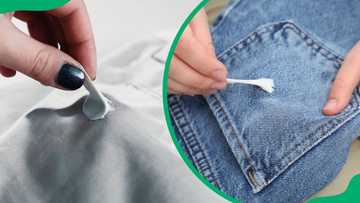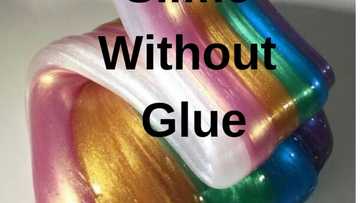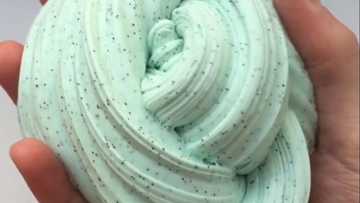How to clean leather: Essential tips for maintaining your items
Leather is a common material in many homes, often loved for its durability and timeless elegance. Items made from the material are sometimes stressful to clean while preserving their natural shine. This article looks at how to clean leather at home without damaging it.

Source: Getty Images
TABLE OF CONTENTS
Proper care is paramount to ensure the longevity of leather while retaining its lustre. Before selecting the right cleaning products, you must identify the type of leather you are dealing with. Chrome-tanned leather is often used to make shoes, boots, jackets, and car seats, while vegetable-tanned leather makes items like backpacks, horse saddles, and belts.
How to clean leather
It is important to clean your leather items as soon as you notice dirt or grime. Below is a simple step-by-step guide on how to clean different types of leather using homemade leather cleaners.
How to clean leather couches and car seats at home
- Gently brush away loose dirt with a soft-bristled brush, taking care to move in the same direction as the leather's grain so as not to damage the material.
- Create a mild cleaning mixture by adding a small amount of gentle, natural soap to a bowl of distilled water, ensuring it is lightly sudsy.
- Moisten a soft microfiber cloth with this soapy water and lightly pass it over the leather's surface without applying too much pressure or scrubbing hard.

Source: UGC
- Clean the leather in small segments, taking caution not to drench the material.
- Moisten another clean cloth with just distilled water and use it to gently wipe off any lingering soap from the leather, being mindful not to soak the material.
- Use a separate dry, soft cloth to dab the leather dry, soaking up any remaining wetness.
- Allow the leather to dry in a cool and dry place.
How to clean shoes and boots with finished leather
If you are cleaning shoes and boots with finished leather, do the following;
- Remove the laces to ensure you clean every part of the shoe.
- Follow the above steps to clean the leather part of the shoe
- To clean the soles, make a sole paste by mixing baking soda, mild dish soap, and water, then scrub with a toothbrush.

Source: UGC
- Rinse off with a clean cloth, and then allow the shoes to air dry.
N/B: To clean shiny office leather shoes, moisten a terry cloth rag with a mild sudsing cleanser, and then wipe the surface of the shoes to remove any dirt or dust.

Source: UGC
How to clean suede/unfinished leather shoes
Shoes with unfinished leather/suede can be cleaned as follows;
- Using a suede brush or toothbrush, gently brush off any dirt or loose particles on the surface of the shoe. Brush in one direction.
- Use a suede eraser to rub out any stains or scuff marks, and then gently brush. You can also rub gently with a microfiber cloth dipped in a white vinegar mixture or a commercial suede cleaning solution to remove more stubborn stains, then let it dry overnight.
- Use a brush to remove any excess suede cleaner.
- Apply a suede protector

Source: UGC
How to remove stains from leather
Stains on leather can be hard to remove if left for too long. Depending on the type of stain, try the following to restore your leather to its original shine;
- Ink stains: Dab the stain with lemon juice, then let it rest for several minutes before blotting it with a clean cloth.
- Food/grease/oil stains: Sprinkle the stain with talcum powder, flour, baking soda, or cornstarch to draw out the oil. Let it stay for a few hours, preferably overnight, until the powder looks saturated, and then wipe it off.
- Moderate/severe water stains on finished leather: Apply white vinegar solution to the stain by gently rubbing in circular motions using a damp cloth/sponge.
- Water stains on suede/unfinished leather: Dampen a lint-free cloth and wet the leather's surface from the stain to the edge, then dry it evenly. You can also use a specialized suede cleaner.
- Salt stains: Make vinegar and water solution, then dampen a soft, clean cloth with the solution and gently rub the salt stain. If the salt stain fails to come off, try a salt stain remover.
If the stain is stubborn and cannot be removed with household products, consider seeking professional services from a leather cleaning expert.

Source: Getty Images
How to condition leather
Conditioning leather after cleaning is crucial to ensure the material retains its strength and appearance. Cleaning usually removes moisture and natural oils, which can dry the material.
To condition your couch, car seat, and other leather items, do the following;
- Apply natural leather conditioners like olive or coconut oil. You can also use commercial leather conditioners.
- Gently rub in circular motions, then let it stay for several hours, preferably overnight, to allow the conditioner to be absorbed.
- Buff any excess conditioner off with a clean cloth.
To condition office leather shoes for a shiny finish, follow these simple steps;
- Using a small horsehair brush, dip it in polishing cream, then apply gently to the shoe. Rub the shoe surface for about 30 seconds using the brush.
- Use a large horsehair brush to brush off excess polishing cream
- To protect the material from damage, apply protective cream or wax using a small horsehair brush.
- Using a large brush, buff the shoe to shine.

Source: UGC
Tips on how to maintain leather
To ensure your leather maintains its shine, take note of the following tips;
- Keep away from direct sunlight as it can make the colours fade over time
- Regularly clean your leather to remove dirt before it turns into stubborn stains
- Keep away from sharp objects
- Keep them in a breathable, dry place; exposure to humidity can lead to the formation of mould.
- Do not apply soap directly to leather as it damages the material. The soap used should be mild.
- Avoid using cleaning products with ammonia or bleach in them
- After cleaning, let it dry naturally in a well-ventilated area. Using a heat source like a blow dryer to speed up the drying process can cause the leather to warp or crack.
- Do not rinse since letting the material get overly wet destroys it. Buff with a soft, dry cloth after cleaning it.

Source: Getty Images
FAQs
Here are some frequently asked questions about leather cleaning and conditioning;
Is it okay to clean leather with water?
Leather and water are not very compatible and can sometimes cause stains, according to Dan Concord (via Glamour), a leather crafter at Yardley in Pennsylvania.
For natural leathers, water itself can sometimes cause staining, so we want to be careful about using water alone and too much of it...Additionally, if there's a substance or stain on the leather, using water and too much could help spread that substance and stain, making it worse.
If the material has a surface-protectant layer, water can be used to clean it. The coating prevents the water from getting into the leather.
What household products can you use to clean leather
Various household ingredients can be used to clean leather, but it is crucial to test it on a small, unnoticeable area to ensure it does not destroy the material. Commonly used products include;
- White vinegar
- Mild dishwashing soap
- Rubbing alcohol
- A mixture of lemon juice and cream of tartar
- Olive oil, used as a conditioner
- Coconut oil, used as a conditioner
- Vacuum cleaner to remove dust and crumbs in leather couches and seats.
What is the best thing to clean leather with?
You should clean gently using a microfiber cloth and mild soap. Ensure you know the kind of leather you have, and then choose the right leather cleanser and conditioner, according to the International Leather Club experts.
To do that, we simply identify a cleaner that is good for that particular type of leather. For example, a suede may require a different cleaner than a vegetable tan leather, so it's always important to determine what type of leather it is you're cleaning to get an appropriate cleaner for it.

Source: Getty Images
What products should you avoid when cleaning leather?
You should be careful when selecting products to clean your leather to avoid damage. Here are some products not to use;
- Ammonia products: Ammonia removes natural oils and moisture from the material, which leads to discolouration, drying, and cracking.
- Abrasives: Always use a soft cloth to clean rather than abrasives like stiff brushes or steel wool as they scratch the surface, leading to damage.
- Bleach products: Bleach is highly corrosive, which weakens the fibres, leading to discolouration and cracks
- Alcohol-based products: Alcohol destroys the natural oils in leather
- Acetone products: Acetone is a powerful solvent that can dissolve the finish on the material
- Vinegar: While vinegar is a go-to leather cleaner due to its natural disinfectant properties, it is recommended to avoid it. Vinegar is more acidic than leather, hence weakens the material. If you have to use it, ensure it is diluted with water or use less-concentrated vinegar like white distilled vinegar.
How often should you clean leather?
The frequency of cleaning leather depends on factors like how often they are used, the colour, the type of leather, and their exposure to dirt. It is recommended to clean as soon as you spot dirt, but deep cleaning your leather couch or car seat can be done every 6 to 12 months.
Conditioning should also be done every 3 to 12 months, depending on the type of leather. According to Saddleback Leather, Chrome-tanned leather should be conditioned after every 12 months because it thrives on neglect.
Vegetable-tanned leather requires frequent conditioning, about every 3 to 6 months. It is easily destroyed by water and extreme heat but can last long if properly cared for.

Source: Getty Images
Now that you know how to clean leather at home, you can easily ensure its durability and aesthetic appeal. Always remember to condition your leather after cleaning to restore its lustre.
DISCLAIMER: This article is not sponsored by any third party. It is intended for general informational purposes only and does not address individual circumstances. It is not a substitute for professional advice or help and should not be relied on to make decisions of any kind. Any action you take based on the information presented in this article is strictly at your own risk and responsibility!
READ ALSO: Best vacuum cleaners in South Africa: Top list (with images)
Briefly.co.za highlighted some of the best vacuum cleaners in South Africa. When choosing the right vacuum, you have to consider factors like suction power, filter type, design, manoeuvrability, and dust cup capacity.
In South Africa, there are several excellent vacuum cleaner options available. The article provides several ideas to help you find the perfect match for your home.
Source: Briefly News







